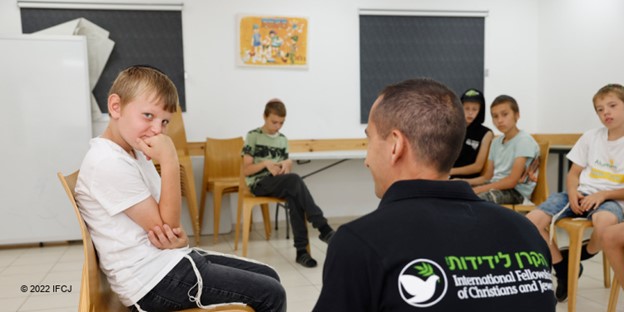The world has been shocked at Russia’s invasion of Ukraine and the ongoing war there. And those who stand for the Jewish people have stepped up to show care and compassion for the thousands of Jewish refugees forced to flee Ukraine. But what about those thousands of children, uprooted and traumatized? The Times of Israel’s Judah Ari Gross reports on what Israeli schools — and The Fellowship — are doing to welcome these kids whose Hebrew is limited, but whose trauma is great:
Though hundreds of new immigrants — known in Hebrew as olim — join the Israeli school system each year, these nearly 2,600 students from the former Soviet Union were part of the largest wave of immigration to reach Israel in over two decades. In total, some 31,000 people have so far immigrated to Israel, or made aliyah as it’s referred to in Hebrew, from Ukraine (over 12,000) and Russia (nearly 19,000) in the aftermath of the Russian invasion of Ukraine and the latter countries’ crackdowns at home…
This influx represents a major challenge to the education system, both in terms of the large number of immigrants and the fact that many fled to Israel suddenly due to war, unlike most new arrivals who are able to prepare for their move in advance.
“These aren’t people who sat in [Hebrew classes] and learned some Hebrew in Ukraine first,” said Benny Haddad, head of the International Fellowship of Christians and Jews’ immigration department, which helps both with the immigration and integration of Ukrainian Jews in Israel.
“These aren’t people who were planning to make aliyah,” he said, using the Hebrew term for Jewish immigration to Israel. “They are starting from zero…”
Over the past six months, government ministries, municipalities and non-profits have worked both to prepare the new immigrants to enter the education system as well as to prepare the education system to integrate the new immigrants.
This included establishing summer camps for immigrant children across the country and holding workshops for their parents about the nuances of the Israeli school system and for educators about the specific challenges and characteristics of these new immigrants.
The camps, many of which were funded in part by the International Fellowship of Christians and Jews (IFCJ) but run by local governments, were aimed at teaching the children Hebrew; exposing them to Israeli society, culture and history, as well as to their newly adopted hometowns; and giving them an enjoyable summer.
“The camps weren’t just an ulpan, ”Haddad said, using the Hebrew term for Hebrew-language instruction courses. “They were a lot of things, including fun…”



